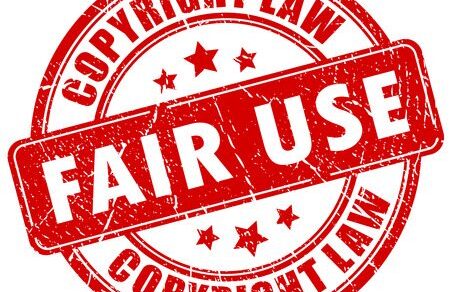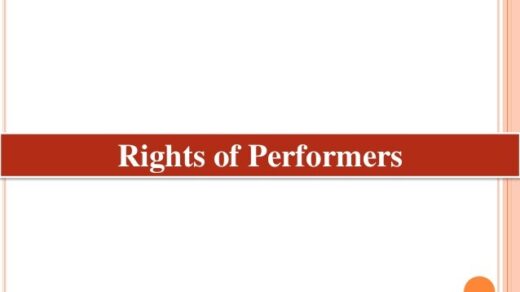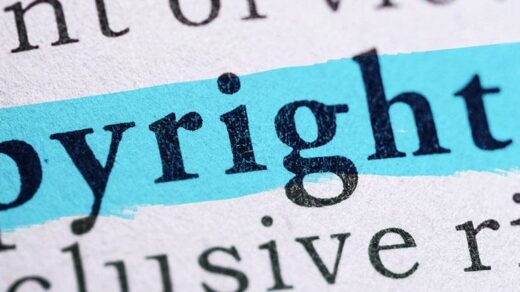Collective Management Organizations (CMOs) are defined in the Copyright Act as organizations which negotiate for the collection and distribution of royalties and the granting of licenses in respect of copyright works or performer’s rights.
In Kenya the recognized Collective Management Organizations are:
- Music Copyright Society of Kenya (MCSK)
- Music Publishers Association of Kenya (MPAKE)
- Kenya Association of Music Producers (KAMP)
- Performers Rights Society of Kenya (PRISK)
- Music Copyright Society of Kenya (MCSK)
The Music Copyright Society of Kenya is a non-profit making collective management organization for authors, composers and publishers of musical works registered under the Companies Act as a company limited by guarantee.
Its main mandate is to collect royalties in public performance and broadcasting on behalf of its members and to distribute the same to its members based on the professional rules of Copyright Collective Management Organizations.
The Society also represents the interests of similar performing rights societies through reciprocal agreements in Kenya.
The Requirements to Become a MCSK Member
- Author, Composer & Arranger Requirements
- One (1) copy of commercially published audio CD of each album/Single; strictly in MP3 Formats.
- Two (2) passport size photographs and a copy of identity card/passport/birth certificate;
- Copy of National identity card/passport/birth certificate for next of Kin;
- Copies of agreements if there is joint copyright ownership.
- Names of group members and an appointed representative if it is a group/band or choir.
- Five thousand shillings, application fee. (Nonrefundable).
- Letters of administration from the courts of law if applying on behalf of a deceased person.
- Guarantor who has been a member of MCSK for a minimum of one year
- Preferred bank account number of the applicant/s. (NO SACCOS)
- KRA pin certificate.
- Publisher’s Requirements
- A certified copy of certificate of incorporation or business name;
- One (1) copy of CD of each album published by the company or business entity; strictly in MP3 Formats.
- Certified copy of PIN certificate for the company or sole proprietorship.
- Certified copies of contracts/ agreements between the publisher and the composers/authors/writers;
- Names and nationalities of all Directors or partners of the publishing company;
- Copies of agreements if the company has acquired control of local/foreign publisher catalogues;
- Two (2) passport size photographs and a copy of Identity card/passport of the representative/s;
- Company resolution appointing the representative/s;
- Guarantor who has been a member of MCSK for a minimum of four
- Company resolution to join MCSK;
- Cover letter on the Company’s letter head;
- Ten thousand shillings, application fee.(nonrefundable)
- Preferred bank account number of the publishing company. (NO SACCOS)
- KRA pin certificate.
- Music Publishers Association of Kenya (MPAKE)
The Music Publishers Association of Kenya (MPAKE) is a non-profit organization licensed by the Kenya Copyright Board that represents authors, composers and music publisher. The roles of MPAKE are to:
- Safeguard and promote the interests of its members to the government, the music industry, the media and the public.
- Provide its members with a wide range of services and guidance aimed at promoting an understanding of the value of music and the importance of copyright.
- Provide publishers with a forum, a collective voice and a wide range of benefits, services and training courses.
- Promote an understanding of the value of music and the importance of copyright.
3. Kenya Association of Music Producers (KAMP)
The Kenya Association of Music Producers (KAMP) is a body that represents the rights and interests of producers of sound recordings and whose membership comprises of record labels. Incorporated in 2003, KAMP was registered and granted its licence to operate as a collective management organization (CMO) in May 2008, by the Kenya Copyright Board (KECOBO).
This CMO collects license fees and distributes royalties in accordance with the Copyright Act of 2001. KAMP’s primary role is to administer rights on behalf of its members through granting a license to those who play recorded music in public such as television and radio broadcasters, event’s, shops, pubs, bars, public service vehicles, DJs, salons, restaurants, shopping malls, etc.
Rationale for the Protection of Sound Recordings
The rationale for the protection of sound recordings is to ensure that the:
- Producers of sound recordings protect their skills and investments against other persons’ unauthorized use.
- Producers of sound recordings hold the right to authorize or prohibit the reproduction of the sound recordings.
- Producers of sound recordings hold the right of remuneration when recordings are used for broadcasting or communication to the public among others.
Objectives of the Kenya Association of Music Producers
The objectives of KAMP are as follows:
- To collect license fees on behalf of rights holders and to distribute royalties accurately, fairly and equitably.
- To provide a forum for discussing matters of common interest and to promote dialogue between various independent creative arms of the entertainment industry.
- To establish and maintain bonds and reciprocity between the Association and similar associations elsewhere in the world.
- To promote ethical business practices within KAMP memberships.
- To establish and enforce rules and a code of conduct for the regulation, maintenance and promotion of standards for members, management, employees, directors and agents in their dealings with each other and with third parties.
- To take such action as may be necessary by legal or other processes for the protection of the rights of its members.
- To act as an intermediary between stakeholders, industry players and the relevant government bodies so as to lobby and aid in proposed new legislation, or amendments to existing statutes in line with the current industry scene and technological developments.
- To ensure that members whose works are commercially used are paid their royalties in accordance with our distribution rules.
In a nutshell producers and performers of sound recordings and audio visual works hold the right of remuneration when their recordings are used for broadcasting and/or communication to the public.
THE NECESSITY AND RATIONALE OF COLLECTIVE MANAGEMENT ORGANIZATIONS
Section 46 of the Copyright Act provides for the incorporation, purpose and roles of collective management organizations and the role of KECOBO in regulating them.
The necessity and rationale of collective management organizations has been recognized and explained in several cases within our jurisdiction. In Xpedia Management Limited and Others v Attorney General and Others Justice Mumbi Ngugi observed as follows,
“as submitted by MCSK, the individual management of rights is virtually impossible with regard to certain types of use for practical reasons. MCSK illustrates this point by submitting that a right-holder is not materially capable of monitoring all uses of his works as he cannot, for instance, contact every single entertainment establishment, radio or television station to negotiate licenses and remuneration for the use of his works. Conversely, it is not practical, as submitted by MCSK, for a user to seek specific permission from every right owner for the use of every copyrighted work.”
Furthermore in Cellulant Kenya Ltd v Music Copyright Society of Kenya Ltd the Court noted that: The necessity of a Copyright Collecting Society is imperative on account of the fact that such society has the expertise and means of monitoring copyright users for the purposes of assessing royalties that is required to be paid to individual copyright owners. It would be impossible for an individual artist, like in the instance case relating to music, to monitor the various media that exploit the copyright of such artists to determine the level of royalty that should or ought to be paid.
Benefits of Joining a Collective Management Organization
The benefits of joining a collective management organization to a member are as follows:
- A member is entitled to royalties whenever their musical works are played on radio, television or exploited in public places.
- A member is entitled to international royalties whenever their song receive airplay from other affiliate societies because collective management organizations maintain reciprocal agreements with sister societies.
- Proof of the ownership of any of their work/song in the case of a legal dispute.
- The monetization of their musical works for airplays courtesy of the collective management organizations monitoring system that monitors online stations worldwide.
- International recognition via IPI (Interested Party Information).
- Partnerships between CMOs and stakeholders administering mechanical services in their platforms generate different revenue streams to the members.
- Benevolent funds.
- The reimbursement of medical bills.
- Members attend training seminars that CMOs organize regularly in corporation with various stakeholders in the entertainment industry to sensitize performers on various issues that affect them.
THE RIGHTS ADMINISTERED BY COLLECTIVE MANAGEMENT ORGANIZATIONS
A collective management organization can administer the four main rights, these are
- Performance Rights
- Broadcasting Rights
- Mechanical Rights
- Synchronization Rights
- Performance rights
The right to perform music in public amounts to performing rights. These rights form an integral part of copyright law and demand payment to music composers, lyricists and publishers.
A performance is considered public if it is broadcasted on television, radio or any other transmitted performance of any live song, nightclubs, restaurants and permission to publicly perform a song must be obtained from the copyright holder or a collective rights organization.
In Kenya the Performers Rights Society of Kenya (PRISK) established on 1st Nov 2009 administers this right to performers in musical (musicians) and dramatic works (actors). PRISK negotiates and sets tariffs with the different users of sound recordings and audio-visual works. In respect to any exploitation of works, PRISK administers performers’ rights relating to broadcasting, communication to the public, making available by wire or wireless including transmission to subscribers to diffusion or any digital service, mechanical reproduction, copying or similar reproduction such as digital copying and any form of use of such works.
- Broadcasting Rights
The Copyright Act defines a broadcast as a transmission, by wire or wireless means, of sounds or images or both or the representations thereof, in such a manner as to cause such images or sounds to be received by the public and includes transmission by satellite.
The Act provides for broadcasting of works incorporated in audio-visual works where the owner of the copyright in any literary, musical or artistic work authorizes a person to incorporate their work in audio-visual works and a broadcasting authority broadcasts such works, it shall, in the absence of any express agreement to the contrary, be deemed that the owner of the copyright authorized the broadcast.
The nature of copyright in broadcasts is the exclusive right to control the doing in Kenya of any of the following acts, namely, the fixation and the rebroadcast of the whole or a substantial part of the broadcast and the communication to the public of the whole or a substantial part of a television broadcast either in its original form or in any form recognizably derived from the original.
It is also important to note that where a broadcasting authority broadcasts audio-visual works in which a musical work is incorporated, the owner of the right to broadcast the musical work shall be entitled to receive fair compensation from the broadcasting authority.
- Mechanical Rights
A mechanical license in copyright law is a license from the holder of a copyright of a composition or musical work, to another party to create a cover song, reproduce, or sample a portion of the original composition.
This right applies to work that is copyrighted and is not an open source item or in the public domain. MCSK deals largely with the licensing of mechanical rights in the digital domain.
- Synchronization Rights
Synchronization rights are granted by a holder of the copyright of a particular composition, allowing the licensee to synchronize music with a visual media output such as film, television shows, advertisements, video games, accompanying website music or movie trailers.
THE PROCEDURE FOR THE APPLICATION FOR REGISTRATION OF A COLLECTING SOCIETY
The framework for application for the licence of a collecting society is provided for under Section Copyright Act, 2001.
Regulation 15 of the Copyright Regulations, 2004 provides for the procedure to be followed in the application for the registration of a collecting society.
The application is to be made on Form No. CR 12 accompanied by the following documents-
- A certificate of registration as a company limited by guarantee and incorporated under the provisions of the Companies Act (Cap. 486).
- A certified copy of a society’s Memorandum and Articles of Association.
- Where applicable, a certified copy of the society’s annual return filed with the Registrar of Companies showing the corporate structure of the society during the period of January to December of the previous year.
- Where applicable, audited accounts of the society for the five years preceding the date of its application for registration as a collecting society under the Act and these Regulations.
- A full list of the names and addresses of all the members of the society.
- Any other document or information that the Board may require the society to produce.
Certificate of Registration of a Collecting Society
The certificate of registration of a collecting society is to be in Form No. CR 13 of the Copyright Regulations, 2004.
Application for the Renewal of Registration of a Collecting Society
The application for renewal of registration of a collecting society and certificate of renewal of registration of such society shall be in Form No. CR 14 and Form No. 15 respectively of the Copyright Regulations, 2004.
REFERENCES
Copyright Act, 2001 Chapter 130 Laws of Kenya
Copyright Regulations, 2004
Companies Act, 2015 (Cap 486 of the Laws of Kenya)
FREQUENTLY ASKED QUESTIONS (FAQ’s) – Welcome To MCSK
In Xpedia Management Limited and Others v Attorney General and Others NRB Petition No. 317 of 2015 [2016] eKLR
Cellulant Kenya Ltd v Music Copyright Society of Kenya Ltd ML HCCC No. 154 of 2009 [2009]
Leadsinger, Inc. v. BMG Music Publishing, 512 F.3d 522 (9th Cir. 2008).




